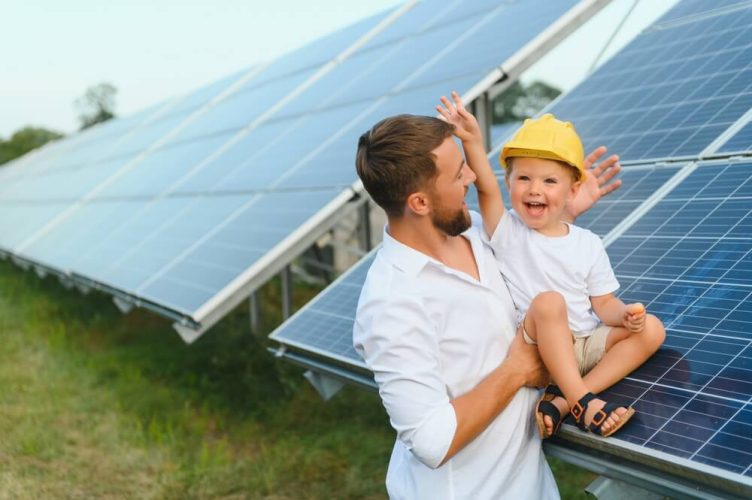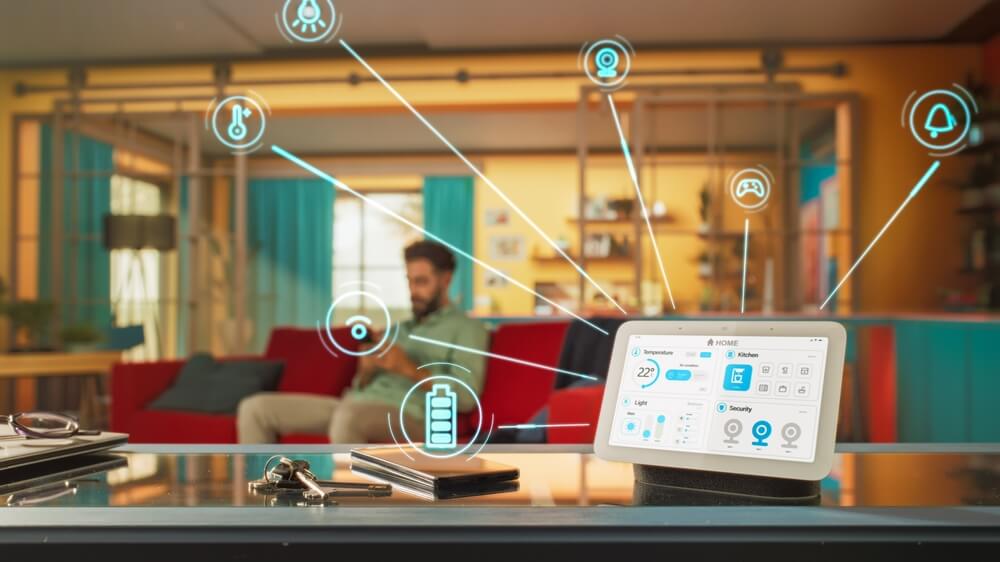
If you’ve upgraded your residence with green equipment and smart technology, you need to know exactly how each piece of tech fits in with your homeowners coverage policy. Does home insurance cover solar panels? How about electric vehicle charging stations? Knowing what kinds of add-ons and upgrades your policy covers is the best way to ensure you have the green home insurance you need.
How Modern Technology Is Changing the American Home
Just a few decades ago, solar roofing and smart home technology were still relatively new, and they weren’t a concern for most homeowners. However, things are quickly changing as green technology and smart home systems are becoming more popular and accessible to the masses.
Forty-five percent of homes with internet access have a smart device in their house, and the popularity of EVs is skyrocketing. These upgrades are transforming the value of American properties, making it more important than ever to ask questions like “Does house insurance cover solar panels?” and “How do smart devices impact my coverage?”
Does Standard Homeowners Insurance Cover These Upgrades?
Adding upgrades and renovations to your residence can affect your homeowners coverage because they change the overall value of your house and impact the risks associated with insuring your property. This can also apply to certain tech upgrades and additions, such as solar panels and smart homes. But do you need special smart home insurance coverage, EV charger home insurance, or solar energy home insurance to stay covered? Or, are these elements included in a standard plan?
Solar Panels and Roof-Mounted Equipment
Does house insurance cover solar panels? In most cases, the answer is yes! Solar panels and other equipment mounted on your roof qualify as part of your dwelling, so they’ll be covered under standard policies. If a covered situation damages your panels, you’ll be able to file a claim with your plan to pay for their repairs.
There is an exception, however, if you don’t own the panels outright. If you lease your solar equipment, the solar company maintains ownership of the equipment. In that case, they may have their own coverage, so you won’t have to rely on your homeowners policy.
EV Chargers and Garage Upgrades
Different types of car engines, including hybrid and electric options, are becoming more popular and mainstream. That means more people are installing EV chargers in their houses.
Typically, if your EV charging station is hardwired into your house, it qualifies as part of your dwelling, so it would be included in your homeowners coverage. However, standard policies often exclude car accessories, so portable chargers would fall under your auto policy. Because different insurers can have different definitions for EV chargers, it’s important to check your individual policy to determine if you have coverage or not.

Smart Home Devices and Liability Risks
Smart home devices would be considered part of your dwelling or, at the very least, part of your personal property covered by your standard homeowner’s plan. Plus, if you install a smart device, it can actually save you money on your coverage.
Certain smart home tools often have safety benefits that can lessen the damage from different emergencies. For example, smart water leak detectors could prevent water damage from becoming severe. Other smart tools, like security cameras and security systems, can also reduce the risk of theft, vandalism, fire, and water damage, ultimately decreasing your insurance risk and lowering your premium.
Tips for Making Sure Your Insurance Matches Your Upgraded Home
Although standard policies typically cover things like solar panels and smart homes, updating insurance after home tech upgrades is a smart move to ensure you’re fully protected. Here’s how to make sure your coverage aligns with your new technology.
Notify Your Insurance Provider After Installations
After upgrading your house, reach out to your insurer to inform them of the upgrades. If you need to get a new appraisal or adjust your coverage limits, they can walk you through the process. If you’re especially concerned, you can contact them ahead of any major tech installations to discuss potential changes to your policy.
Keep Receipts and Documentation for Claims
Keeping receipts is a great way to verify the value of your home tech upgrades, which can be helpful if they’re damaged during a covered event. It can also be a good idea to document any maintenance to show that negligence or lack of upkeep didn’t contribute to any issues.
Upgrading Your Home? Let’s Upgrade Your Insurance Too
Does house insurance cover solar panels, smart homes, and EV chargers? If they’re attached to the house, they’ll usually count as part of the dwelling, so the answer is yes. Although there is a bit of a gray area when it comes to EV chargers and accessories, you can quickly clear up any confusion by talking to your insurer. Once you have your coverage in place, you can enjoy your modern tech without any stress.
If you want to step into the future with your household tech tools, you’ll need an insurer that can keep up with home insurance and green technology. At Freeway Insurance, you can find eco-friendly home insurance plans that cover everything you love about your modern house. If you’re thinking about updating your policy after tech upgrades, reach out online for a quote or call 800-777-5620. You are also welcome to stop in and visit at one of our convenient locations.



